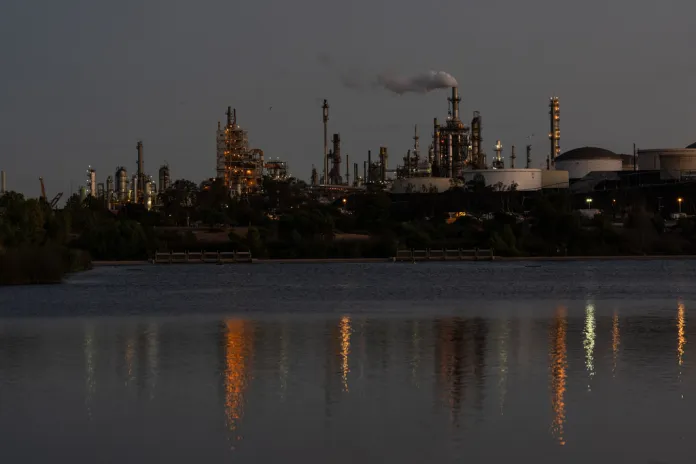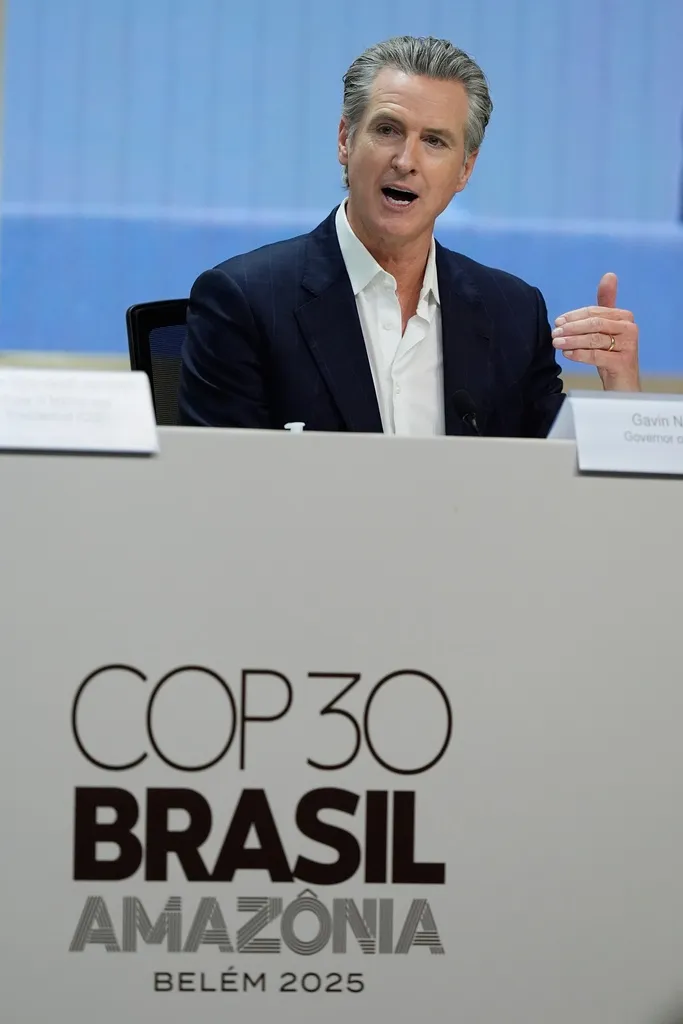Gov. Gavin Newsom (D-CA) is facing mounting criticism over energy policies that some claim have driven up costs, undermined affordability, and jeopardized U.S. security.
The outgoing Democratic governor’s policies have forced Californians to pay some of the highest gas and electricity prices in the nation and imposed regulations that have pushed more than 360 energy companies out of the state. Since Newsom took office in 2019, new oil drilling permits have also fallen by 95%, resulting in California producing 128 million fewer barrels of oil per day over the past five years, despite holding the fifth-largest petroleum reserves in the country, Rep. Vince Fong (R-CA) said.

“The undeniable consequence of Newsom’s refusal to support domestic production is a greater reliance on foreign oil,” said Fong, who represents the state’s 20th Congressional District, which includes much of the southern and southeastern part of California’s Central Valley.
Four decades ago, less than 6% of California’s crude oil came from outside the United States. Today, the number is more than 60%, with Brazil accounting for 20% and Iraq for 21%.
“By early 2026, the state is projected to lose nearly 20% of its remaining refining capacity, and without urgent action, blackouts, price spikes, and fuel shortages will become the new normal — not only for Californians, but for millions across the West Coast who depend on our energy supply,” Fong wrote in an opinion piece for Fox News. “This drastically impacts the viability of California’s pipelines, most of which require 90,000 barrels a day in production to remain financially solvent and operational. However, due to shortages, they are barely operating at 50,000 barrels a day, causing $2 million in losses a month for operators.”
Edward Ring, director of water and energy policy at the California Policy Center, also blamed Newsom for much of the state’s woes.
“Thanks to Newsom and the state legislature’s ceaseless, unending regulatory assault on its in-state oil drilling and refining industry, the state’s petroleum infrastructure is on the brink of collapse,” he said. “Newsom has been frantically backpedaling in the face of a looming gasoline supply crisis as two oil refineries have announced plans to shut down within the next 12 months.”
Crimson Midstream LLC, the operator of California’s largest inland crude oil pipeline, announced in September that it was in danger of closing without state approval for a rate increase. The San Pablo Bay Pipeline, which hauls oil from the Bakersfield area to northern California refiners, is losing $2 million a month and creating “severe financial distress” for the company, Robert Waldron, CEO of Crimson’s parent company, CorEnergy Infrastructure Trust, wrote in a letter to Newsom’s office.
Pipeline systems are engineered to operate within specific throughput levels, and when oil volumes drop below those thresholds, operating costs can spike.

The Western States Petroleum Association has cautioned California lawmakers for a year that declining production in the Central Valley could threaten the viability of key pipelines, including the San Pablo Bay line. Two major Bay Area refineries, Valero’s Benicia facility and PBF Energy’s Martinez plant, rely partly on Central Valley crude and together produce about one-fifth of the state’s fuel.
A disruption in San Pablo Bay Pipeline deliveries would force these refineries to import more crude by sea, Waldron warned in his letter. In response to falling volumes, Crimson is seeking a 37% fee increase for crude shipments, a temporary surcharge of $3.75 per barrel, and other financial adjustments.
Last week, California energy regulators provided some relief for the struggling oil pipeline company, though it’s unclear whether it will be enough to stop it from shuttering. The California Public Utilities Commission gave Crimson California Pipeline the go-ahead to increase the rate it charges to transport crude oil from Los Angeles Basin oil fields to Los Angeles refineries by 26%.
Fong also said Newsom’s restrictions on in-state fuel production put the nation’s safety at risk.
California hosts dozens of military installations under U.S. Indo-Pacific Command, where service members must be ready to deploy worldwide on short notice. That readiness also depends on reliable access to fuel, he said.
The state’s refineries are among the few capable of producing the highly specialized, top-grade aviation fuels required by the U.S. military. In 2024, California bases used about 10 million gallons of gasoline, and recent refinery closures are expected to cut jet-fuel output by more than 600,000 gallons per day.
“No amount of Newsom’s strategic, political headlines can hide the threat his policies pose to our national security,” Fong said.
The California Republican also said rising threats from China required the U.S. to beef up operations in the Indo-Pacific region.
UK LAUNCHES CRITICAL MINERAL STRATEGY TO CUT DEPENDENCE ON CHINA
“But instead of working across the aisle to address this threat and strengthen California’s role in our national security, Newsom has continued to intentionally reduce California’s refinery capacity and in-state oil production, weakening our defense posture in order to appease his far-left base,” Fong said. “If California’s fuel network continues to be suffocated by a patchwork of underutilized pipelines and overburdened refineries without enough energy supply to operate, the military fuel supply chain supporting the West Coast’s military operational capabilities will be harmed.”
An email to Newsom’s office from the Washington Examiner was not returned.
